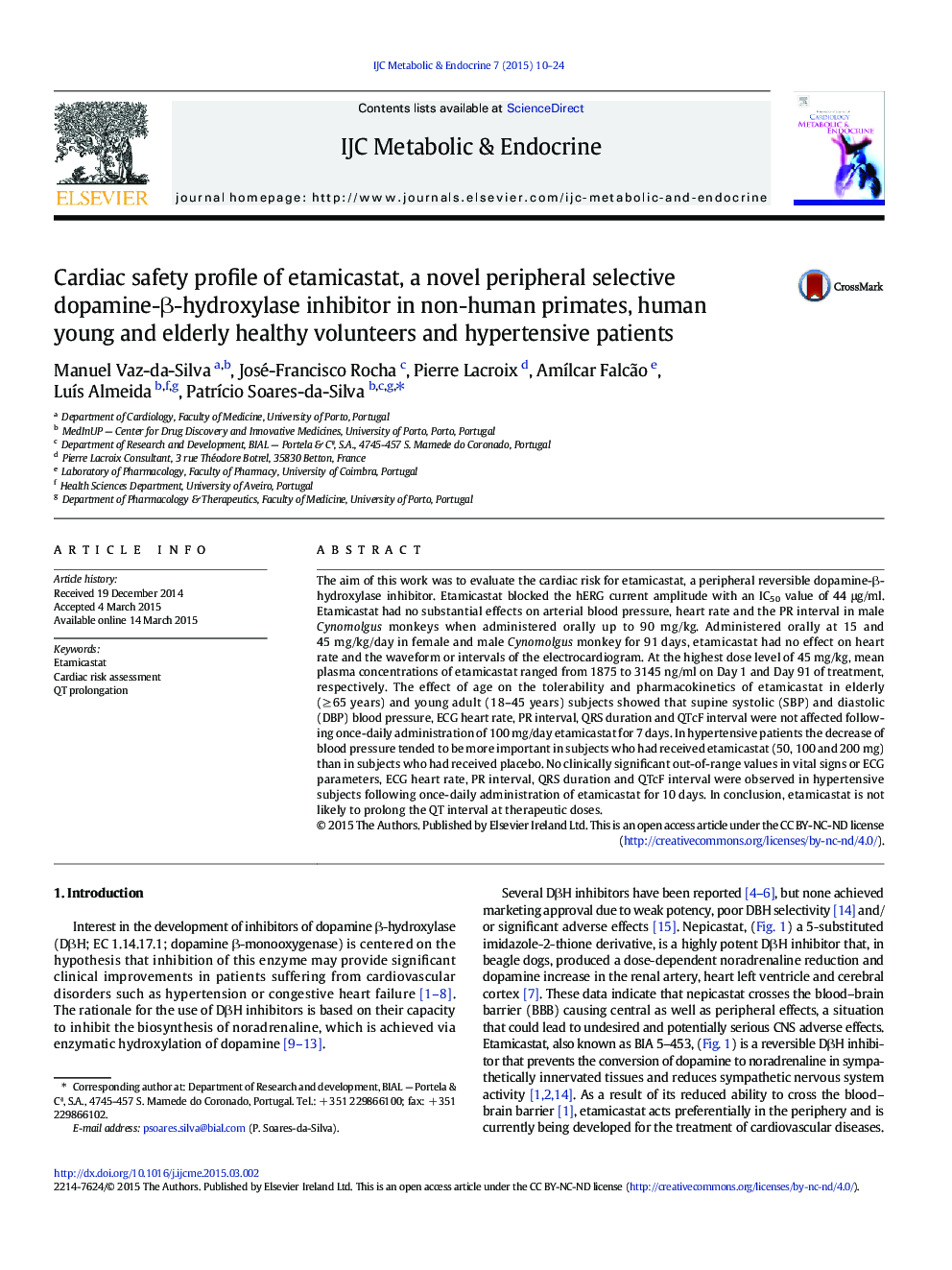| Article ID | Journal | Published Year | Pages | File Type |
|---|---|---|---|---|
| 2927218 | IJC Metabolic & Endocrine | 2015 | 15 Pages |
The aim of this work was to evaluate the cardiac risk for etamicastat, a peripheral reversible dopamine-β-hydroxylase inhibitor. Etamicastat blocked the hERG current amplitude with an IC50 value of 44 μg/ml. Etamicastat had no substantial effects on arterial blood pressure, heart rate and the PR interval in male Cynomolgus monkeys when administered orally up to 90 mg/kg. Administered orally at 15 and 45 mg/kg/day in female and male Cynomolgus monkey for 91 days, etamicastat had no effect on heart rate and the waveform or intervals of the electrocardiogram. At the highest dose level of 45 mg/kg, mean plasma concentrations of etamicastat ranged from 1875 to 3145 ng/ml on Day 1 and Day 91 of treatment, respectively. The effect of age on the tolerability and pharmacokinetics of etamicastat in elderly (≥ 65 years) and young adult (18–45 years) subjects showed that supine systolic (SBP) and diastolic (DBP) blood pressure, ECG heart rate, PR interval, QRS duration and QTcF interval were not affected following once-daily administration of 100 mg/day etamicastat for 7 days. In hypertensive patients the decrease of blood pressure tended to be more important in subjects who had received etamicastat (50, 100 and 200 mg) than in subjects who had received placebo. No clinically significant out-of-range values in vital signs or ECG parameters, ECG heart rate, PR interval, QRS duration and QTcF interval were observed in hypertensive subjects following once-daily administration of etamicastat for 10 days. In conclusion, etamicastat is not likely to prolong the QT interval at therapeutic doses.
